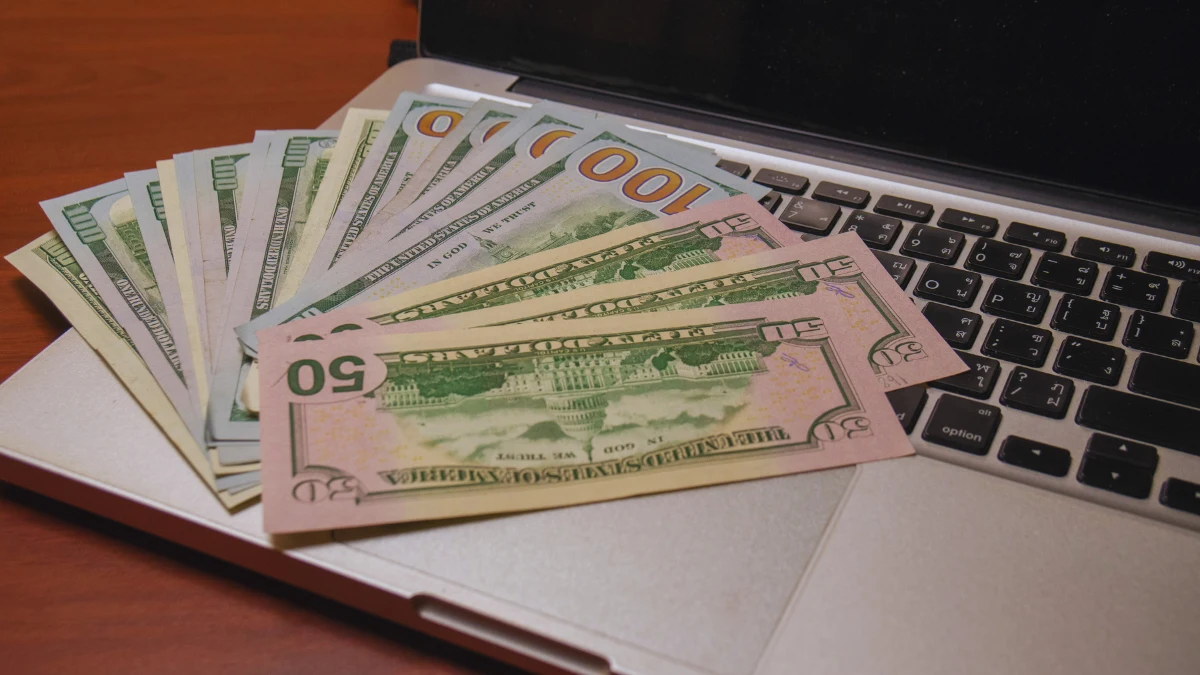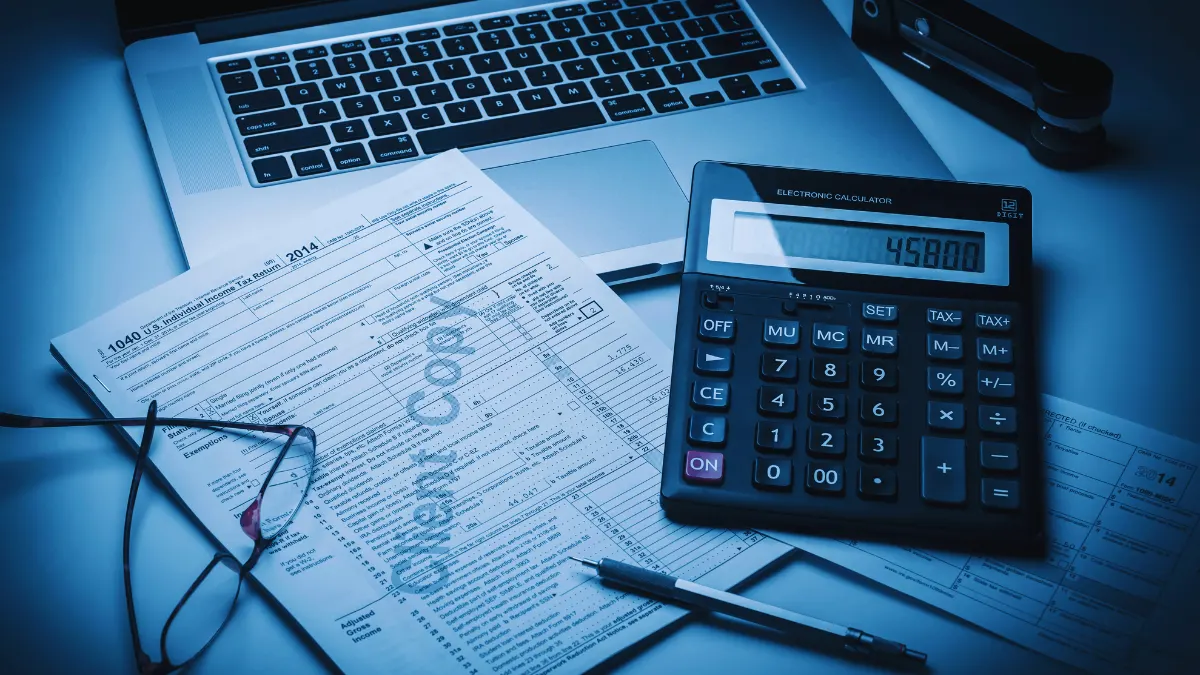Trying to hide income from the IRS? Think again. The tax agency just had its best year ever for catching tax cheats.
In 2024, they caught over 500,000 people who didn’t report income correctly. They collected $29 billion in extra taxes and penalties from these cases. That’s more money than the entire GDP of many countries.
The IRS now has nine high-tech ways to track your spending and find unreported income. They use artificial intelligence, monitor social media, and get data from your bank, payment apps, and even foreign governments.
Here’s exactly how they’re watching your money and what you need to do to avoid becoming their next target.
1. The Computer That Matches Every Dollar You Earn

The IRS runs a program called the Automated Underreporter (AUR). This computer system checks if the money you reported matches what your employers and banks said they paid you.
Every year, the IRS gets 4.6 billion forms from companies. These include your W-2 from work and 1099 forms from banks, freelance clients, and investment companies. The computer matches these forms to your tax return using your Social Security number.
The matching process:
- The computer compares every 1099 and W-2 to your tax return
- It looks for income you didn’t report
- It checks if you claimed deductions you can’t prove
- It flags returns where the math doesn’t add up
When the numbers don’t match, you get a CP2000 notice in the mail. This letter says you might owe more taxes. You have 30 days to respond by agreeing, disagreeing with proof, or partially agreeing.
In 2024, the IRS closed 1.2 million of these cases and collected $7.7 billion in extra taxes.
Why this matters: If you forget to report income from a side job or investment, the computer will catch it. Always check that your tax return includes all income shown on your 1099 and W-2 forms.
2. Payment Apps Now Report Your Business Income

Venmo, PayPal, Cash App, and other payment apps must now report your business income to the IRS. This started in 2024.
The reporting timeline:
- 2024: Apps report if you get more than $5,000 in business payments
- 2025: The limit drops to $2,500
- 2026: The limit drops to just $600
How apps decide what’s business income:
- The memo line mentions services like “lawn care” or “tutoring”
- You get many payments from different people
- The payments are round numbers like $50 or $100
- People mark the payment as “goods and services”
Business vs. personal payments:
- Business: Dog walking, selling crafts, tutoring, ride sharing, food delivery
- Personal: Splitting dinner, paying rent to roommate, birthday gifts
What you need to do: Report all business income from payment apps on your tax return. Keep records of what each payment was for. Mark personal payments correctly in the app.
3. Artificial Intelligence Picks Who Gets Audited

The IRS uses artificial intelligence to decide who to audit. A June 2024 report from the U.S. Government Accountability Office found that AI helps the IRS identify taxpayers who are most likely to owe additional taxes.
The IRS spent $60 million on AI technology in 2024, up from just $7.1 million in 2020. They use machine learning to spot patterns that humans might miss.
Patterns AI looks for:
- Income that doesn’t match your zip code
- Deductions that are too high compared to similar taxpayers
- Round numbers that look made up
- Income jumping up and down with no clear reason
- Business losses that happen every year
AI targets these groups most:
- Large partnerships with revenues over $10 million
- High-income taxpayers making over $1 million
- People claiming the Earned Income Tax Credit
- Cash businesses like restaurants and construction
What this means: The computer is getting smarter at finding tax cheats. If your return looks suspicious compared to similar taxpayers, AI might flag you for an audit.
4. Businesses Must Report Large Cash Payments

Any business that gets more than $10,000 in cash must file Form 8300 within 15 days. Starting in 2024, most businesses must file this form electronically.
What counts as cash:
- Bills and coins from any country
- Cashier’s checks under $10,000
- Money orders under $10,000
- Traveler’s checks under $10,000
Which businesses must report:
- Car dealers
- Real estate agents
- Jewelry stores
- Lawyers
- Any business that takes large cash payments
The IRS gets these reports and checks if people reported the income they used to make these large purchases. If you spend more cash than your reported income allows, they want to know where the extra money came from.
5. Your Social Media Posts Can Trigger an Audit

The IRS can look at your public social media posts during an audit. Their official manual says they can monitor “social media information to perform compliance-related work.”
What they look for:
- Photos of expensive purchases
- Travel to expensive destinations
- Posts about big purchases or winnings
- Business activities you didn’t report
Platforms they check:
- Facebook (public posts and photos)
- Instagram (public accounts)
- Twitter/X (public tweets)
- LinkedIn (business activities)
- TikTok (showing off purchases)
The IRS calls these “lifestyle audits.” They compare how you live with how much money you said you made.
How to protect yourself:
- Think twice before posting about expensive purchases
- Don’t post photos with large amounts of cash
- Be careful about business success posts if you report losses
- Remember that friends can screenshot and share your posts
6. Foreign Bank Accounts Are Easy to Track Now

If you have foreign bank accounts worth more than $10,000, you must file an FBAR (Foreign Bank Account Report). The IRS found hundreds of people who should have filed but didn’t. These accounts average over $1.4 million each.
How they find unreported foreign accounts:
- Data sharing agreements with over 100 countries
- Bank records from investigations
- Whistleblower reports
- Spending patterns that suggest hidden money
- Wire transfer tracking
FBAR penalties are massive:
- If you didn’t know: Up to $12,921 per account per year
- If they think you knew: Up to 50% of the highest account balance
- Criminal penalties: Up to 5 years in prison
7. Banks Automatically Report Suspicious Activity

Banks must file reports when they see suspicious activity or large cash transactions.
Currency Transaction Reports (CTR): Filed for any cash transaction over $10,000
Suspicious Activity Reports (SAR): Filed when banks think something looks fishy
What triggers suspicious reports:
- Making multiple deposits just under $10,000 to avoid reporting
- Moving large amounts of money with no clear business purpose
- Transactions that don’t match your normal patterns
- Cash activity that doesn’t fit your business type
You won’t know when banks file these reports. The IRS gets them automatically and may investigate.
8. Cryptocurrency Transactions Are Being Watched

The IRS started a Virtual Currency Compliance Campaign and found a 75% non-compliance rate among people they investigated.
How they track crypto:
- Data from cryptocurrency exchanges like Coinbase
- Court orders for trading records
- Blockchain analysis tools that follow transactions
- International cooperation with other countries
What you must report:
- Selling crypto for more than you paid
- Trading one crypto for another
- Using crypto to buy things
- Getting crypto as payment for services
- Mining and staking rewards
New rules coming: Starting in 2025, brokers must report crypto transactions like stock trades, and anyone transferring $10,000 in crypto must file a report.
9. They Connect All Your Financial Data

The IRS doesn’t look at just one source. They combine information from multiple places to build a complete picture of your finances.
Data sources they connect:
- Tax returns and information returns
- Bank transaction reports
- Real estate purchase records
- Vehicle registration databases
- Business licensing records
- Social media posts (public ones)
- Court records and judgments
The IRS uses your Social Security number to link all this information together. Their computer can instantly see every job you’ve had, every bank account connected to you, and every property you own.
How the computer flags problems:
- Can your reported income support your spending?
- Do your assets match your reported earnings over time?
- Are you claiming business losses but clearly making money?
- Is your lifestyle too expensive for your reported income?
How to Stay Out of Trouble

Report all income sources:
- W-2 wages from all jobs
- 1099 income from freelance work, banks, and investments
- Cash payments for services or goods sold
- Payment app income (Venmo, PayPal, Cash App)
- Cryptocurrency gains and income
- Side hustle and gig work income
Even if you don’t get a tax form, you still need to report the income.
Keep detailed records:
- Bank statements and receipts
- Documentation for large purchases
- Records of gifts, inheritances, or loans received
- Cryptocurrency transaction records
- Payment app transaction screenshots
Be smart about social media:
- Don’t post about expensive purchases unless you can afford them
- Don’t post about business success if you claim losses on your taxes
- Avoid photos with large amounts of cash
- Consider setting accounts to private
Get professional help when needed:
- If your taxes are complicated, hire a tax professional
- If you made mistakes in past years, get help fixing them
- If you get audited, consider hiring a tax attorney
Handle cash carefully:
- Don’t make structured deposits to avoid $10,000 reporting
- Keep records of where large amounts of cash come from
- Be prepared to explain cash deposits or purchases






